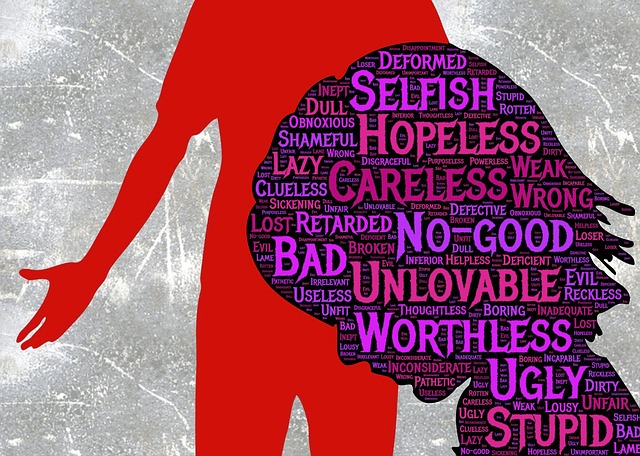As we age, we can lose a lot of the independence we enjoyed when we were younger. Physical and mental disabilities can make it hard to live alone, meaning we need help and care from others — whether it’s friends and family, or staff at an assisted living facility or skilled nursing home.
Millions of Americans are in assisted living, or are receiving significant care from relatives in their old age. But there’s a dark side to all of this — the prevalence of elder abuse.
Elder abuse can be financial, emotional, verbal, psychological, and even physical. Sometimes it’s purely out of anger or spite, but in many cases, the abuser is trying to get something out of the senior, usually something financial. It’s a lot more common than it should be.
If you or a loved one are getting up there in age, elder abuse is something you need to know about. If you know the signs, you can report it to the proper authorities, and remove yourself or a loved one from an abusive situation.
Basic Facts about Elder Abuse
Here are some quick facts about elder abuse in the United States and elsewhere in the Western world.
- Victims are at risk of dying up to three years sooner than other seniors who are not abused. Even financial and psychological abuse can take a heavy physical toll on a senior citizen who is already struggling with age-related health issues.
- One of the biggest concerns right now is underreporting and underdetection of elder abuse. Many victims, as well as their families, don’t recognize it when it’s occurring. Psychological abuse tactics like gaslighting can make an abuse victim doubt their own suspicions and second-guess themselves, compounding the issue. It’s important for the public to know and understand the signs of elder abuse.
- Elderly women are at a higher risk than elderly men.
- Victims are often also suffering from dementia and cognitive decline, poor overall physical health, as well as social isolation — which may be facilitated by the abuser.
- Many seniors are afraid to speak out about abuse, even when they’re clearly a victim of it. This can be due to denial, shame and guilt, fear of retaliation, and psychological manipulation by the abuser.

Types of Elder Abuse
Like other varieties of abuse, elder abuse comes in many different forms. Not all are physical, and sometimes they’re not immediately obvious for that reason.
Physical Abuse
Physical abuse of the elderly may seem unthinkable, but sadly, it happens more than you might think. This encompasses any kind of abuse that causes physical pain or injury, such as striking or punching someone, using inappropriate restraints, or even the inappropriate use of drugs.
According to the Assisted Living Federation of America, only one in six elders who suffer physical abuse actually report the incident to someone else. Women over 80 are at the highest risk.
Some of the signs that physical abuse might be occurring can include:
- Broken bones and skull fractures
- Bruising
- Welts
- Cuts and lacerations
- Visible marks from restraints such as ropes or straps that are being used inappropriately
- Internal bleeding
- Evidence of undermedication or overmedication
- Refusal by a caretaker or facility to allow the senior to meet with friends and family alone, without supervision
- Broken eyeglasses or torn clothing
- Sudden changes in behavior or personality
Sexual Abuse
Elders, especially women, are at a surprisingly high risk of sexual abuse as well. This encompasses any kind of non-consensual sexual contact or activity with an elder, and need not involve penetrative sex. It can be as simple as unwanted touching. In many cases, dementia or other disabilities can make it difficult for the person to protest or express their non-consent.
Some of the signs that can indicate sexual abuse of an elder include:
- Unexplained genital infections (such as vaginitis), or urinary tract infections (caused by bacteria introduced to the urinary tract during sexual activity without proper hygeine).
- Unexplained pelvic injuries.
- Sudden onset of an STD that the person did not have before.
- Blood in the person’s underwear
- Bruising around the person’s inner thighs and genital area
- Unexplained bleeding from the vagina or anus
- Panic attacks
- Signs of post-traumatic stress disorder (PTSD), common among sexual abuse victims
- Sudden social and emotional withdrawal
- Engaging in unusual and inappropriate behavior, learned from an inappropriate sex role relationship with a caregiver.
Currently, there’s not a lot of existing research regarding typical commonalities among offenders. This is complicated by the fact that many of the victims suffer communication impairments due to dementia, aphasia, and other medical problems. Offenders can be live-in nursing aids, nursing home employees, and even family members. It’s more common in nursing homes than in the homes of the victims (12% of cases) or the homes of the offenders (15% of cases). Women are at the highest risk, though men can also be victims.

Emotional Abuse
Emotional abuse of an elder involves inflicting pain and anguish through non-physical means, which can include verbal aggression or manipulative behaviors like gaslighting. This kind of abuse does not leave physical injuries in its wake, and can be more difficult to detect — especially when the victim cannot communicate easily due to medical problems.
Some of the behaviors that can constitute abuse of an elder include:
- Blaming the victim for problems created by the abuser
- Being demeaning toward the person
- Humiliating someone
- Ridiculing someone verbally
- Ignoring a person’s needs in order to hurt and control them
- Intimidating the elder, verbally or physically (for example, by threatening physical harm)
- Isolating a senior from their friends and family
- Yelling at the person
An estimated 67% of elderly emotional abuse victims are women, but men are also at risk. The average age of victims is 78, and most cases occur in nursing homes and similar facilities.
As we’ve mentioned, this type of abuse is particularly insidious and manipulative, and is often largely invisible. It can be harder to detect than physical or sexual abuse. Some of the behavioral changes in a senior that can point toward emotional and verbal abuse include:
- Avoiding eye contact with others
- A depressed or socially withdrawn demeanor
- Self-injuring behavior, such as cutting
- Mood swings, as well as symptoms suggestive of anxiety or depression in a person without prior history of such
Elder Neglect
Neglect is also considered a form of elder abuse. Rather than “positive” behaviors — that is, adding something new, like verbal yelling or hitting someone — it’s a matter of “negative” behaviors — the lack of actions in a way that intentionally harms an elderly person.
This generally involves refusing to provide a senior with things they need to live and be comfortable, such as food, water, climate control, hygiene, comfort, and personal safety.
Some examples of caregiver behaviors that constitute neglect include:
- Allowing the elderly person to live in unsanitary conditions
- Allowing bedsores to develop and go untreated
- Denying food to the point of malnutrition
- Denying water to the point of dehydration, to which seniors are particularly susceptible to begin with
- Failing to treat a person’s health problems, such as denying medications
- Allowing the person to live in conditions that are frankly unsafe and dangerous, such as lack of heat, fire hazards, and lack of clean potable water
Financial Elder Abuse
Financial abuse of the elderly occurs when someone, usually a caretaker, manipulates the person in the interest of financial gain for themselves. This can involve other types of abuse, like emotional or physical attacks. In many cases, financial abuse is perpetrated by taking advantage of an elderly person’s naivete, memory issues, and trust, and by keeping things from them.
Some common types of financial abuse can include:
- Forging an elderly person’s signature on documents, such as checks
- Forcing an elderly person to sign documents like wills or deeds, which would result in financial gain for the abuser
- Stealing money or belongings from the person
- Using financial demands as leverage, threatening to deny an elderly person care unless they comply.
- Using an elderly person’s property or possessions without their permission
- Perpetrating outright fraud, in a legal sense, in order to faciliate financial gain at the elderly person’s expense
- Carrying out cons or scams, which can include dishonest telemarketing schemes
- Using the elderly person’s debit or credit cards without their express permission
While many other kinds of elder abuse are most common in nursing homes, financial abuse is generally perpetrated by family or friends — people the elder believes they can trust.
Reporting Elder Abuse
What can you do if you suspect that an elder is the victim of any type of abuse at the hands of a caregiver?
Per the Elder Justice Act of 2009, nurses and other care professionals are considered mandated reporters. That means if they suspect abuse, even if they’re not completely sure, they’re required by law to file a report.
If you suspect abuse in a nursing home, the first line of action is to file a report to a long-term care ombudsman. You can find these professionals through programs present in your state.
If the abuse is severe and the person is in acute danger, particularly if the abuse is physical or sexual, you can also call 911.
One of the most important things you can do is document signs that abuse is taking place. This can include:
- Observing changes in the victim’s behavior
- Photographing visible injuries
- Getting a written statement from the victim, if possible
- Getting written statements from any witnesses to the abuse




